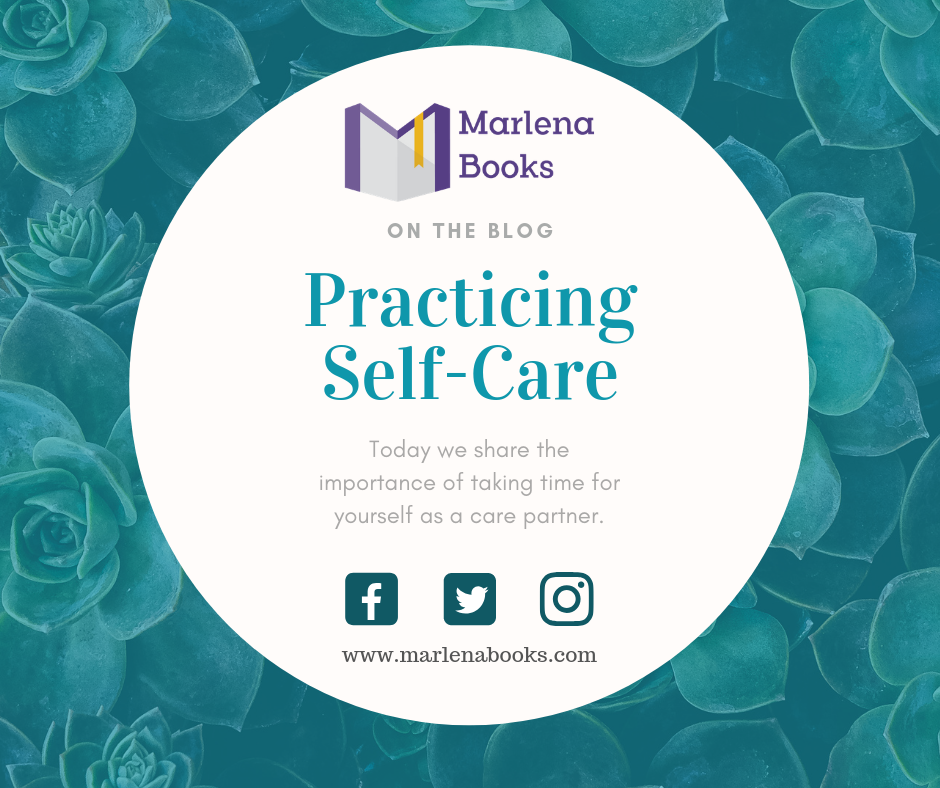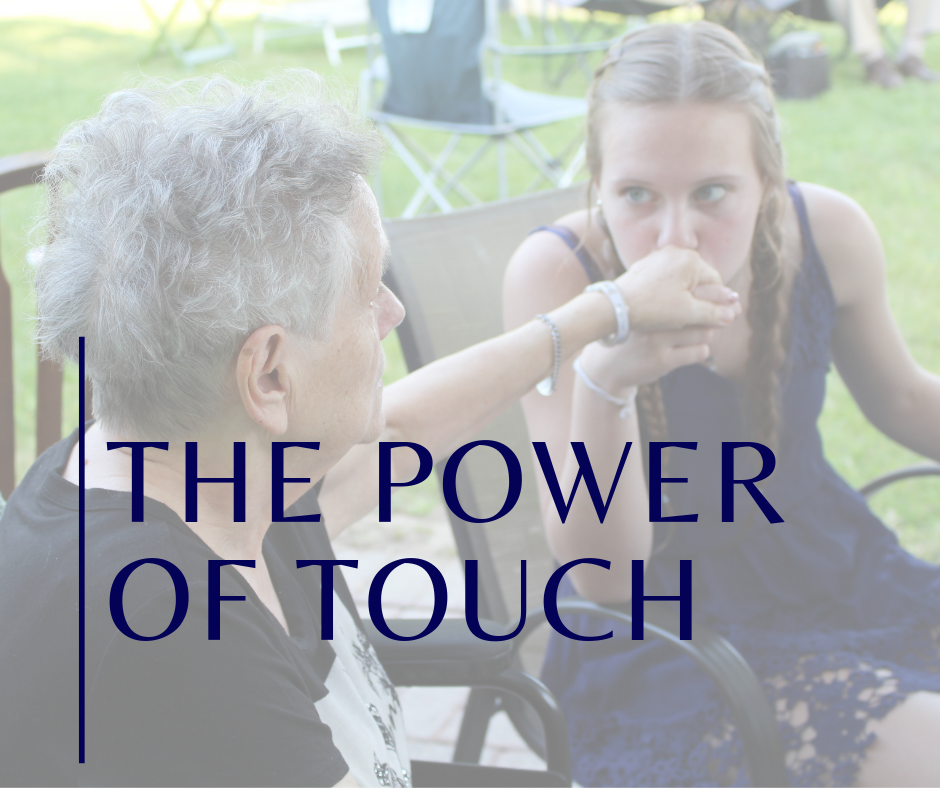
Apathy and Dementia
What is apathy?
Apathy is typically defined as a lack of motivation or disinterest in certain activities.1 It can be due to a dementia diagnosis and can impact their quality of life and their care partners' quality of life. When not identified correctly, apathy can look very similar to depression or laziness. For most persons living with dementia this is not usually the case, as apathy might be mistaken for depression.
What is the prevalence of apathy in persons with dementia?
Apathy is a very common behaviour associated with dementia. Research has found that approximately 70% of persons living with Alzheimer's disease exhibit apathetic behaviours.2-6
What is the impact of apathy?
Apathy can affect not only persons living with dementia but their care partners as well in terms of their emotional well-being. If unrecognized, apathy can have a greater impact, as persons with dementia who are more motivated typically experience a reduction in cognitive decline.
How can we better support persons living with dementia who experience apathetic behaviours?
It is important to know the signs of apathy before jumping to conclusions. If your loved one with dementia is less willing to participate in activities, carry out activities of daily living, or might struggle getting out of bed, they could be showcasing apathetic behaviours.
As a way to address this, there are limited pharmacological interventions, but more non-pharmacological interventions that are better suited to supporting people with dementia to live well. For example, therapeutic recreational activities can help to improve their quality of life and boost their mood. Activities that include stimulation and creativity have been found to have a positive impact. Other activities include cooking, Montessori methods, music, exercise, and pet companionship.1
We are hopeful at Marlena Books that reading would also help to improve quality of life and reduce apathetic behaviours as it is a cognitively stimulating activity, however, we can not make any conclusions given the scant research on reading and dementia.
So what does this all mean?
Based on all of this information, now what can you do to best support yourself, as a care partner, and also your loved one with dementia? Our advice is to continue to keep your loved one with dementia engaged in activities, socializing with others, and maintain their sense of community. This will help to boost their mood and also offer them with a sense of purpose. For yourself, recognize the signs of apathy and gain support from others. Whether that be enrolling your relative with dementia in an adult day program or seek a respite program, take time for yourself to regroup and come back with a positive attitude. While some days you might need a rest, it is important to continue keeping both yourself and your loved one engaged in recreation and social opportunities, as it has numerous benefits.
References
1. Brodaty, H. & Burns, K. (2012). Nonpharmacological management of apathy in dementia: A systematic review. The American Journal of Geriatric Psychiatry, 20(7), 549-564. doi: 10.1097/JGP.0b013e31822be242
2. Robert, P. H., Darcourt, G., Koulibaly, M. P., Claret, S., Benoit, M., Garcia, R., Dechaux, O., & Darcourt, J. (2006). Lack of initiative and interest in Alzheimer's disease: A single photon emission computed tomography study. European Journal of Neurology, 13(7), 729-735. doi: 10.1111/j.1468-1331.2006.01088.x
3. Marin, R. S., Firinciogullari, S., & Biedrzycki, R. C. (1994). Group differences in the relationship between apathy and depression. The Journal of Nervous and Mental Disease, 182(4), 235-239. doi: 10.1097/00005053-199404000-00008
4. Benoit, M., Dygai, I., Migneco, O., Robert, P. H., Bertogliati, C., Darcourt, J., Benoliel, J., Aubin-Brunet, V., & Pringuey, D. (1999). Behavioural and psychological symptoms in Alzheimer's disease. Relation between apathy and regional cerebral perfusion. Dementia and Geriatric Cognitive Disorders, 10(5), 511-517. doi: 10.1159/000017198
5. Hart, D. J., Craig, D., Compton, S. A., Critchlow, S., Kerrigan, B.M., McIIroy, S. P., & Passmore, A. P. (2003). A retrospective study of the behavioural and psychological symptoms of mid and late phase Alzheimer's disease. International Journal of Geriatric Psychiatry, 18(11), 1037-1042. doi: 10.1002/gps.1013
6. Starkstein, S. E. Jorge, R., & Mizrahi, R. (2006). The prevalence, clinical correlates, and treatment of apathy in Alzheimer's disease. European Journal of Psychiatry, 20(2), 96-106.

Practicing Self Care as a Care Partner
Being a care partner for your loved one with dementia can be stressful at times and can sometimes change the relationship you had prior to diagnosis. Today is International Self Care day, and we are sharing ways to take care of yourself as a care partner.
1. Recognize care partner burnout
Feeling burnt out? If you're feeling tired, stressed, and drained, recognize these signs and take action. Just because you're a care partner does not mean you can not prioritize your own health. Recognize how you feel before it takes a greater toll on yourself. Make a plan on how you can move forward and incorporate self-care practices into your routine to take care of yourself.
2. Seek support
Being a care partner does not mean you have to be alone on this journey. Seek out support from family members, friends, support groups, professionals, or online forums. Talking about your feelings can help reduce feelings of burden and stress and you can find more resources to better support you and your loved one on the dementia journey.
3. Take a break
As previously mentioned on our blog, adult day programs are a great way for care partners to take a break while their loved one is engaging in social activities. You can also seek out respite programs in your community and enroll your loved one in a respite stay if you are looking for a longer break. Have an open conversation with your loved one with dementia and make this a positive experience for them. They will understand and might also enjoy a break to feel refreshed and well rested.
4. Spend time doing your favourite activity
Have you been putting off a favourite hobby or social activity? Take time and spend time doing what you love! This will help boost your spirit and relieve your stresses.
5. Spend time engaging in an activity together
Take time to breakaway from the care partner relationship, and engage in a fun activity with your loved one with dementia! It does not have to be big, but something you both loved doing. Doing so will bring you closer and enjoying time together will put both of you in a better mood. Laughter is the best medicine.
6. Incorporate self-caring practices into your daily routine
Life gets busy, especially as a care partner, taking at least 10 minutes a day to an activity geared towards self-care can boost your mood each day. Make this part of your daily routine and this will help to lessen those feelings of care partner burnout. Some activities you can easily incorporate are: writing down three things a day that you're grateful for, meditation, engaging in a hobby, yoga or exercise. Remind yourself daily that you are doing your best and are helping your loved one along their dementia journey.
How do you practice self-care? Share with us in the comments below!

Exercise Adaptations to Stay Active this Summer
Only 50% of Canadians with dementia engage in regular physical activity. On the blog, we share tips for maintaining engagement in physical activity and exercise, regardless of a dementia diagnosis!
The Importance of Community
Receiving a dementia diagnosis can be quite isolating. Stigma still exists in communities and many individuals lose their friends as a result of this. This not only affects persons living with dementia but also their care partners and relatives. It is important to recognize the need for maintaining connections to your community to face dementia head on and continue living a good life.
Dementia is not a barrier, we should open others' minds to realize that dementia presents itself differently in everybody and maintaining social connections and involvement in communities can assist with the progression and help reduce cognitive decline.
Individuals who are diagnosed with dementia might receive strange behaviours from others and might want to retract from their community and no longer participate in hobbies they have always participated in. If you recognize this, look for opportunities in your community, whether it be an exercise group, support group, book club, or social opportunity. Joining a group will help to offer that sense of belonging and gain new friends you might have never met before.
For care partners, this time can also be isolating. You might lose friends as they do not know how to interact with your relative or are not educated on what dementia really is. A safe place to connect with others is through support groups, whether online or in person. These can be a great place to share, gain support, and talk to others who are experiencing a similar situation. Social groups are also a great space, joining a crafting group, social group, or exercise group is a great opportunity to be social while enjoying something with others who have similar interests. Everyone is going through something, so sharing your story can really help to get support. If you don't have time to attend a support group, contacting your local Alzheimer Society is a great opportunity to gain access to more resources and find support that you can easily integrate into your busy schedule.
While dementia might feel isolating, care partners and persons living with dementia express that it also provides an opportunity for them to meet new people, become more educated on the disease and educate others, and become even more involved with their communities than they were before.
What do you do in your community to stay involved? Share with us in the comments below!

Driving and Dementia
Most individuals who receive a dementia diagnosis also experience the loss of their driver's licence. For some, this can be embarrassing, undignifying, and impacts their sense of choice and determination. However, this precaution of taking away a licence is essential to maintain not only an individual's safety but also the safety of other drivers on the road. It's also important to remember that it's not their fault.
This is often a difficult conversation to have, many individuals voicing how they think it's unfair that the doctor took away their licence and not completely understanding why. So, how can we make it better?
It's important to be upfront, honest, and clear about the loss of a driver's licence and why it happened. Don't make them feel upset, embarrassed, or like it is their fault. Empathize with them and let them know that driving does not mean they no longer have choices.
Moving forward, if you do own a car, practice tucking the keys out of sight. Keeping them tucked away will reduce that constant reminder that they can no longer drive and hopefully reduce the chances that they will pick up the keys and start driving when they are not supposed to. Provide a task for individuals to do before getting in the car to offset those feelings. Make them responsible for grabbing a bag, drinks, or any other items you might bring with you in the car. This provides individuals with a sense of purpose and might lessen those negative feelings.
Some helpful sayings to help reduce these negative feelings include:
- The doctor thought it was best for everyone.
- It's not your fault.
- We just want to keep you safe.
- Remind them of their memory loss and be upfront about their diagnosis and comfort them.
- Offer to drive instead.
- Engage in alternatives to driving, such as walking or biking.
These conversations are never easy, but with your support, individuals with dementia can live dignifying, meaningful lives regardless of a driver's licence.

Are you Sun Safe?
Summer is in full effect in Canada and we're sharing tips for individuals with dementia to stay safe in the sun.
Is an Adult Day Program Right for You?
Along the dementia journey, you might start to think about adult day programs (ADPs) for your loved one with dementia. This might be a difficult decision to make and many individuals think of ADPs in a negative light, as you might not think your loved one belongs in an ADP or might not understand why they are attending. On the blog, we discuss the pros and cons for seeking ADPs and how we can help eliminate the stigma associated with ADPs.
Not sure of what an ADP involves?
ADPs offer a partial or full day of programming that takes place in the community for adults who might have a disability, condition, or illness and require a safe environment with care staff available to help support them if needed. ADPs can be specific to persons living with dementia, but do not have to be. That being said, 47% of individuals who attend ADPs are individuals with dementia1. Care that is typically offered in ADPs include assisting with activities of daily living, any medical needs, such as reminders to take medications, and meals are often provided for participants2. Participants often engage in discussions, cognitive, social, and physical activities, form relationships, and are in a safe environment. Some ADPs also offer support groups for care partners who are interested in gaining support from other community members who might be experiencing a similar situation.
Let's start with the positives of ADPs and how they can assist you and your loved one along the dementia journey.
1. Do you find that your loved one with dementia is no longer participating in social activities?
Many individuals with dementia experience a loss of friends after their dementia diagnosis as people don't always know how to react to dementia and stigma still exists. This results in feelings of isolation and loneliness. Persons diagnosed with dementia should be engaging in both social and physical activities as they have many benefits for them, such as improved mood, a reduction in cognitive decline, improved communication skills, and helps persons with dementia to gain confidence and feel a sense of belonging and accomplishment. ADPs provide both social and physical activities in their programming, which is important for persons living with dementia based on the aforementioned benefits. While individuals are diagnosed with dementia, this does not mean their preferences change, they are still themselves and should still seek out opportunities to remain engaged in their communities, whether that be through an ADP or not.
2. Are you feeling burnt out and in need of a break?
Care partners often enroll their loved one with dementia in an ADP to take some time for themselves and have a break. ADPs typically run during the day, with programming starting around 9:30 and ending around 4:30. This provides care partners with the day to relax, run errands, do house chores, visit with friends, or engage in their own recreational activities. ADPs are a great opportunity for care partners to have a respite period and can be beneficial for the relationship as the person with dementia and care partner get a break from one another.
3. Is your loved one with dementia not sleeping as well or maybe napping too much during the day?
Maybe they are missing that cognitive stimulation of being in a routine, engaging with others, and participating in recreational activities. Physical activity and socializing are cognitively stimulating activities that help to improve sleeping. Individuals who attend ADPs typically have a routine, waking up, getting ready for the program, attending the program, and coming home in the later afternoon. This helps individuals get into a routine which might also help their sleeping routine. Sleep is important, but napping too much during the day might be due to a lack of cognitively stimulating activities and boredom. While napping is beneficial, sleeping for most of the day might affect their nightly sleep schedule. Engaging in an ADP will help them maintain a routine, be cognitively stimulated during the day resulting in feelings of tiredness, and reduce the time spent napping during the day.
4. My loved one with dementia is in the early stages of their journey and it might not be the best fit.
ADPs are often offered for individuals along any stage of their journey. Finding the right match for you and your loved one with dementia is essential. If you're interested in enrolling your loved one, visit some ADPs in your community and see what stage individuals are at and if your loved one would feel comfortable in the space. Speaking with your local Alzheimer Society will allow you to get to know each ADP in your community and gain insight on which one might be best for you and your loved one. Speaking with friends or neighbours who are also on their dementia journey will also help you gain insight on ADPs. If your loved one knows someone who already attends an ADP, this sense of familiarity will make them feel more comfortable attending.
5. Losing relationships and seeking a connection to the community?
ADPs are a great place to meet community members in a similar situation as you and your loved one. ADPs are a great opportunity for your loved one with dementia to engage with others who are similar to them and connect over their diagnosis. They can gain friends and support along their dementia journey. For care partners, you can connect with one another and remain integrated in your community with others who are in a similar situation.
6. Needing support as a care partner?
ADPs that offer support groups can help with this. Many ADPs offer separate support group sessions either during the time your loved one is at the program or after the ADP. This is a great opportunity to meet new people who are also along the dementia journey and gain support from others. It's important to talk to other people as a care partner and gain support from those around you.
7. ADPs help to track the dementia journey
Noticing any changes in your loved one with dementia? ADPs can help to track these changes while your loved one attends the program. There are many support staff who are directly interacting with persons with dementia and can make notes of any changes they might see. If you, as a care partner, might notice some changes you can always talk to staff members at the ADP and they can direct you to more resources and next steps.
Next, we'll take a look at some of the challenges to ADPs and why they might not be the right fit for you and your loved one with dementia.
1. Waitlists
Many ADPs have waitlists and this might take a while for your loved one to be accepted as a participant. While this can be a drawback, it is important if you might be interested in an ADP in the future to put your names on the list. Whether or not you are ready for it when they do call, this way this gives you the opportunity to say yes or no when the time comes.
2. Referral
Some ADPs require a referral in order to attend. Contact your local LHIN or doctor on how to receive a referral and the process involved.
3. Cost
Many ADPs cost money to attend. While looking, take this into consideration and determine whether or not you can afford ADPs or not. Reach out to resources in your community if seeking other alternatives.
4. Lack of Understanding from your Loved One
Your loved one with dementia might not understand why they're attending an ADP. Treat an ADP as a positive experience and inform them of why they're going to avoid frustrations and confusion. Other participants might have more advanced dementia than your loved one, and prior to enrolling your loved one with dementia, it is important to have an open and honest conversation with them and make sure they are comfortable attending a new place. Many ADPs ease you into their spaces with trial runs to ensure this is the best fit for them.
5. Location
Ensure the location of the ADP is the right fit for you and your loved one. This is something to consider if you have to be responsible for picking and dropping them off or if you would like to stay close in case anything might happen.
We hope this discussion helps you make the right choice for you and your loved one with dementia. It is important to talk about it with your loved one, family, and friends to ensure ADPs are right for you.
References
1. Anderson KA, Dabelko-Schoeny H, Johnson TD. The state of adult day services: findings and implications from the Metlife national study of adult day services. J Appl Gerontol. 2013;32(6):729Y748.
2. Fields NL, Anderson KA, Dabelko-Schoeny H. The effectiveness of adult day services for older adults: a review of the literature from 2000 to 2011. J Appl Gerontol. 2014;33(2):130Y163.

Fun Summer Activities for Persons with Dementia
1. Gardening
2. Swimming
3. Bird Watching
4. Walking
5. Listening to Music
6. Creating Artwork
7. Crafting
Engage in a craft together! Find a fun craft, like making a photo frame, wind chimes, a bird house, or scrapbooking. A craft will keep you busy all afternoon and you'll have a small keepsake for later. Focusing on a task is good for cognitive stimulation as it is an active activity that requires concentration, precision, and encourages creativity.
8. Read a Book
Read a book together, either outside or inside! We might be a little biased but books have many benefits for persons living with dementia, such as an increase in cognitive stimulation, decreased stress, and improved sleep. Find a seat inside or outside and get lost in your favourite book.
9. Enjoy Ice Cream

Losing Patience
Today we share tips on how to change your mindset when it seems nothing is going right.
Robotic Pets and Dementia
Companion robotic animals are on the rise. They help provide company for individuals living in long-term care, especially persons with dementia. They are particularly useful when residents might want some company and have limited visits from friends and family. They are also convenient as they do not require any day-to-day care, like animals do. They offer individuals with the opportunity to feel a sense of companionship and purpose in their lives.

(Retrieved from Moyle et al., 2016).
Robotic animals look, move, and sound similar to a real-life animal and individuals can engage with them to boost their social and emotional well-being (WHO, 2012). Studies have found that individuals with dementia experience an increase in relationships, relaxation, motivation, and socialization and a decrease in loneliness after engaging with robotic animals (Frennert & Ostlund, 2014; Kanamori et al., 2002; Moyle et al., 2013; Sellers, 2006; Wada & Shibata, 2007).
While these robotic pets can offer a variety of benefits for persons living with dementia, it's important to consider the price tag. Robotic pets are the most expensive, but if you're considering a realistic companion animal, there are other options. These alternatives offer different breeds that might look similar to a previous pet and might remind individuals of their own pet, offering a stronger sense of companionship.
PARO Robotic seals are very realistic and offer a variety of sensors to elicit emotional and social responses, but comes at a high price of $6400.
Ageless Innovation offer realistic Joy For All robotic animals, such as cats and dogs for $120.
Memorable Pets offer realistic stuffed animals for only $35.
Other options include Twiddle Cats that offer a variety of sensory materials for individuals to engage with for $45.
Does your loved one with dementia have a companion animal? Share in the comments below!
References
Frennert, S., & Ostlund, B. (2014) Review: seven matters of concern of social robots and older people. Int J Soc Robot 6:299–310
Kanamori, M., Suzuki, M., & Tanaka, M. (2002). Maintenance and improvement of quality of life among elderly patients using a pet-type robot. Nippon Ronen Igakkai Zasshi 39, 214–218.
Moyle, W., Cooke, M., Beattie, E., Jones, C., Klein, B., Cook, G., & Gray, C. (2013). Exploring the effect of companion robots on emotional expression in older people with dementia: A pilot RCT. Journal of Gerontological Nursing, 39, 46-53.
Moyle, W., Jones, C., Sung, B., Bramble, M., O'Dwyer, S., Blumenstein, M., & Estivill-Castro, V. (2016). What effect does an animal robot called CuDDler have on the engagement and emotional response of older people with dementia? A pilot feasibility study. International Journal of Social Robotics, 8(1), 145-156.
Sellers, D. M. (2006). The evaluation of an animal-assisted therapy intervention for elders with dementia in long-term care. Act Adapt Aging, 30, 61-77.
Wada K., & Shibata, T. (2007). Living with seal robots: its sociopsychological and physiological influences on the elderly at a care house. IEEE Trans Robot 23, 972–980.
World Health Organization (WHO), Alzheimer's Disease International (2012). Dementia. A public health priority. World Health Organization, Geneva.

The Power of Touch
Persons with dementia are still humans. And we should continue to treat individuals with the same dignity, respect, and love that we always have before a dementia diagnosis. While some individuals might not be able to tell you a name, a date, or what you were wearing the day before, they will always remember the feeling of a hug, holding a hand, or a simple pat on the back. As human beings, we sense feelings of safety, comfort, and love in human touch.
Familiarity is an important aspect for people living with dementia, and what better way to make a person feel safe than with a familiar hug from their child, grandchild, or friend?

Studies have found the benefits of touch for persons living with dementia. This includes reducing symptoms associated with dementia, such as agitation, feelings of restlessness and vocalization. Touch also helps with feelings of anxiety and loneliness.
It is important to note that there are a variety of ways to approach a person with dementia if you do want to share touch with them. Always ensure you approach individuals and have their consent or this may cause feelings of frustration or a loss of dignity. Simple touch can include hand massages, hand holding, a pat on the back, or a high five. It is important to maintain dignity and respect for individuals and to not touch if you sense that a person is not comfortable.
For me, I know that my grandmother Marilyn hardly refuses a hug from me and her eyes brighten when we hold hands and sway to the beat of a song. It's these moments that I cherish as she continues on her dementia journey. Sharing a moment of touch allows us to connect in ways that words never could.
References
Hansen, V. N., Jørgensen, T., & Ørtenblad, L. (2006). Massage and touch for dementia. Cochrane Database Systematic Reviews, 18(4). doi: 10.1002/14651858.CD004989.pub2
Woods, D. L., Craven, R. F., & Whitney, J. (2005). The effect of therapeutic touch on behavioural symptoms of persons with dementia. Alternative Therapies in Health and Medicine, 11(1), 66-74.






